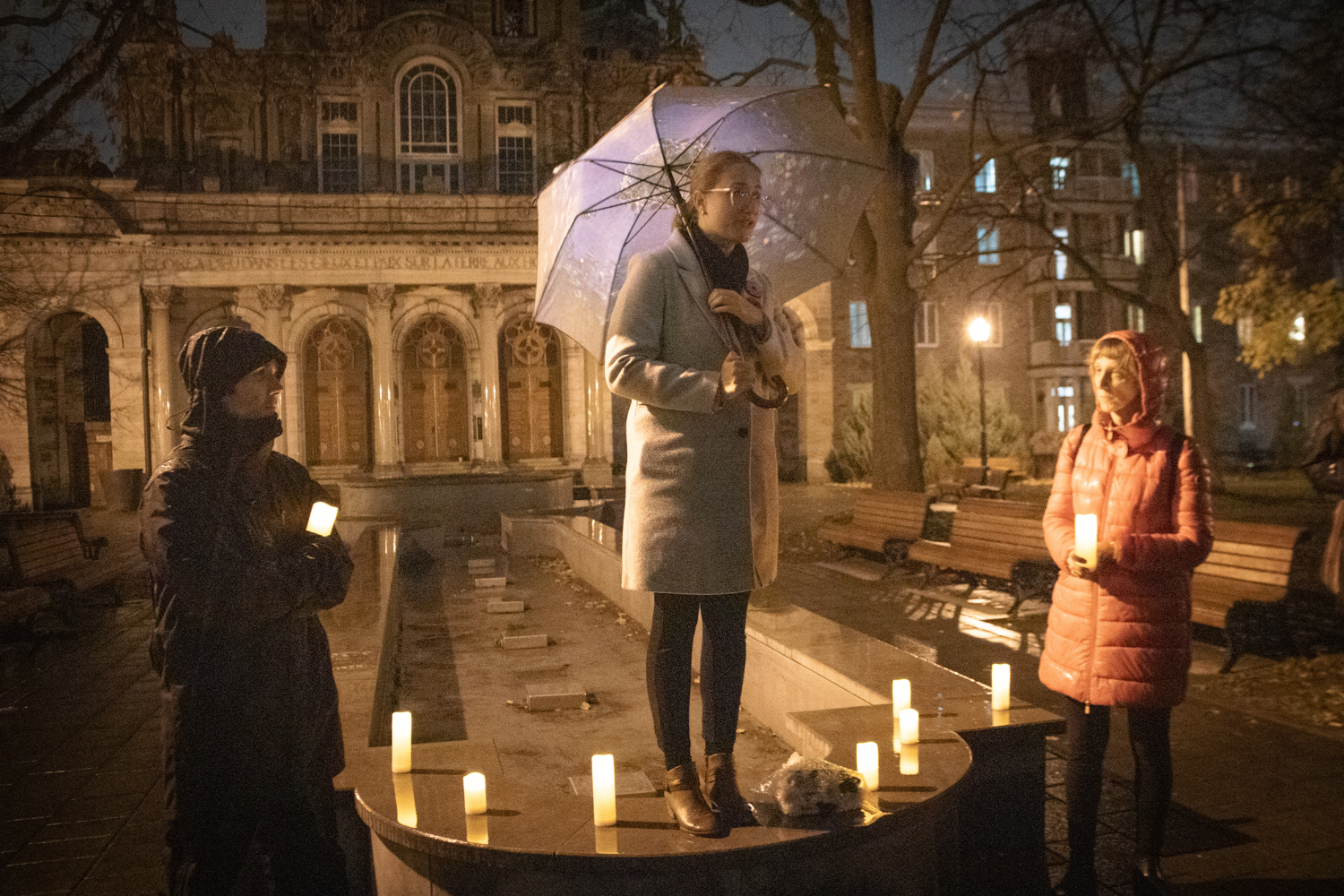Animal Protection Party candidate Kimberly Lamontagne helmed the first commemoration ceremony of animal victims of war in Montreal
On Friday, Nov. 11, people gathered at Parc Lahaie to commemorate the animals whose lives were lost in war.
This was the first ceremony of its kind in Montreal, organized by Kimberly Lamontagne. Lamontagne is an animal rights activist and a candidate for the Animal Protection Party of Canada.
With the sound of the rain in the background, Lamontagne set up some candles around the space. She then stood up among the participants and gave a speech.
“This event is a part of the Animal Alliance of Canada’s Purple Poppy Campaign, started in 2015 in Victoria, British Columbia. This ceremony is held in recognition of the millions of animals’ lives lost in war, to condemn their ongoing use in war and oppose the act of war internationally,” Lamontagne said.
At the National War Memorial in Ottawa, Lamontagne held the same ceremony earlier that week.
“Steps away from this memorial, in Confederation Park, is an underwhelming animals in war dedication that honours animals that served alongside their human comrades in war,” Lamontagne recounted.
Lamontagne made a point in addressing that there are no such statues located here in Montreal.
“I choose to hold a vigil here as the equestrian dedication is underwhelming; it is not as inspiring as the display in London England’s Hyde Park,” Lamontagne said. “I want to highlight that our purpose here is to recognize the animals as victims of war; not heroes and not to valorize them.”
As Lamontagne emphasized, these animals’ lives were taken and not given. Purple poppies were being sold so that participants could commemorate the animal lives that were lost.
“We fully recognize that many soldiers were forced into war themselves. Animals cannot consciously decide to engage or abstain from war. Animals are still used by the Canadian military and in modern warfare,” she said.
After the ceremony concluded, Lamontagne offered two minutes of silence to reflect upon the animal lives that were lost. Lamontagne also gave people the opportunity to come up and speak.
The Purple Poppy Campaign is complementary to the Red Poppy Campaign. The Purple Poppy is not meant to undermine the Red Poppy or reject its symbolism of the human lives who served and died in the war.
